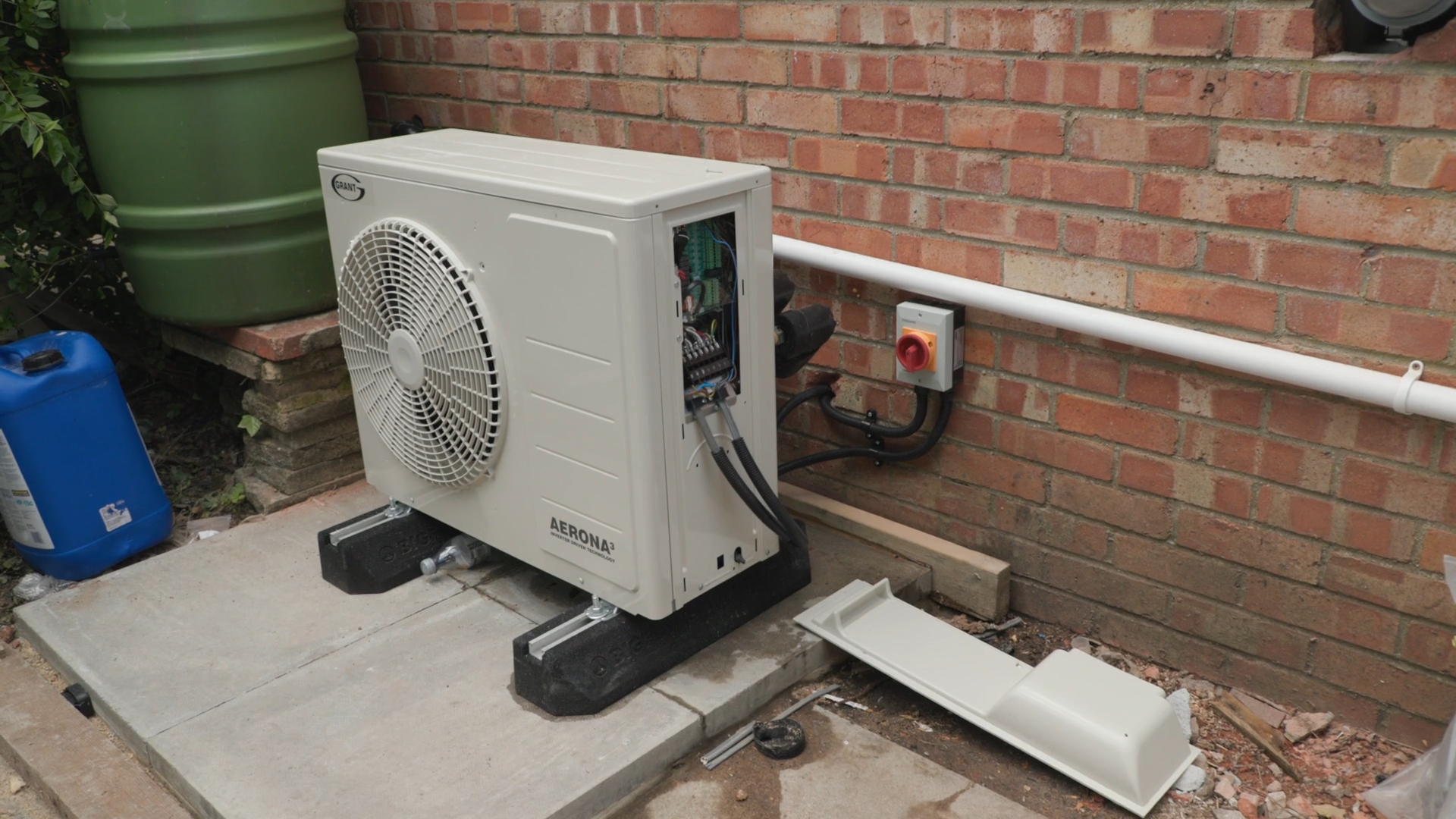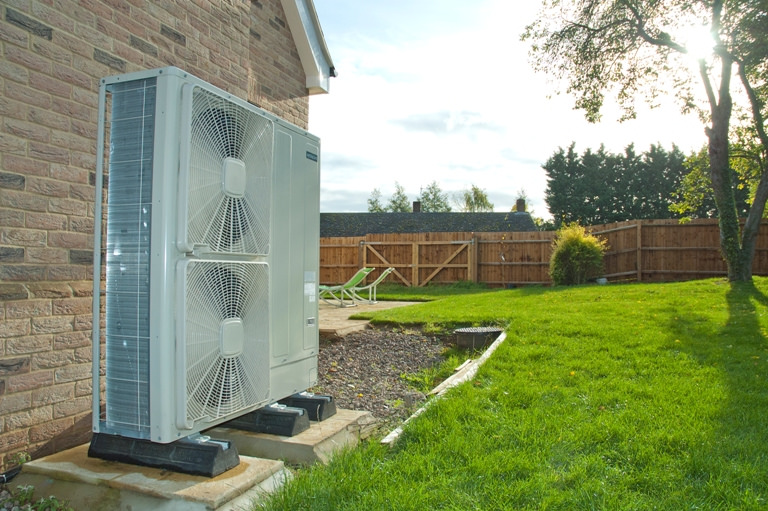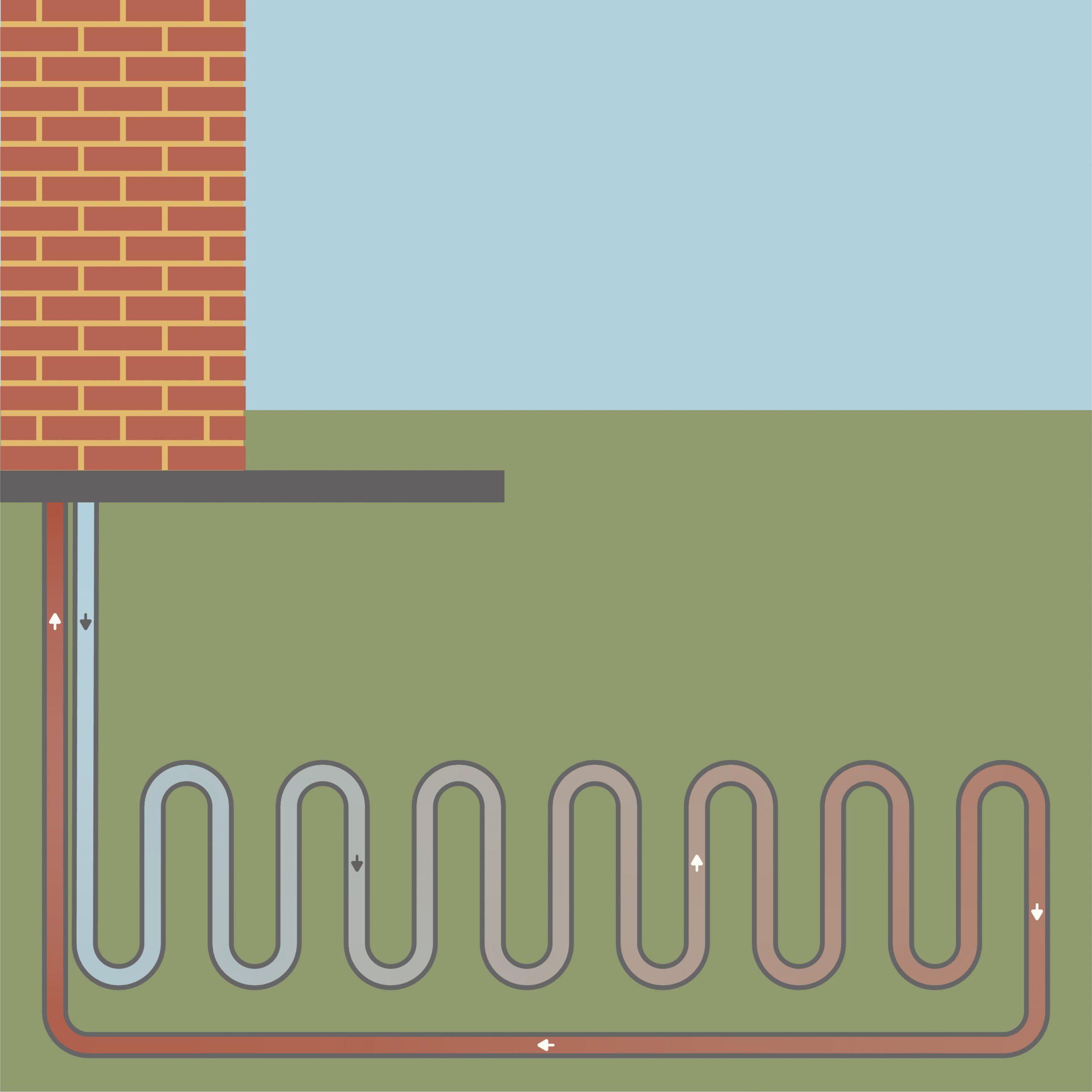
A guide to air source heat pumps
A smart, low-carbon way to heat your home – but is it right for you?
Keeping your home warm while cutting bills and reducing carbon emissions is a priority for many homeowners. Air source heat pumps (ASHPs) offer an efficient, low-carbon way to do just that – making them an increasingly popular alternative to gas and oil boilers.
But are they right for your home?
What is a air source heat pump?
An air source heat pump extracts heat from the outside air – even in cold weather – and uses it to heat your home and provide hot water. It runs on electricity, but for every unit of electricity used, it can deliver up to three units of heat, making it highly efficient and much lower carbon than fossil-fuel heating.

How do air source heat pumps work?
A fan draws in outside air and passes it over a refrigerant fluid. This fluid absorbs the heat, is compressed to raise the temperature, and then transfers that heat into your home’s heating or hot water system.
There are two main types:
- Air-to-water pumps: The most common type in the UK. These connect to radiators or underfloor heating and can provide hot water.
- Air-to-air pumps: These use fans to blow warm air into the home, but they don’t supply hot water.

Is a heat pump right for your home?
Air source heat pumps work best when:
- You have outdoor space to mount a unit (on a wall or the ground)
- Your home already has radiators or underfloor heating
- You’ve reduced heat loss through insulation and draught-proofing
If your home is poorly insulated, you may find a heat pump struggles to keep up – and may cost more to run. That’s why we always recommend taking a whole-house view before making changes.
Our Whole House Plan gives you a clear, tailored roadmap for improving your home’s energy performance – and will help you decide if a heat pump is the right fit.
Real-life stories
In Hook Norton, we supported a homeowner to replace an old oil boiler with an air source heat pump as part of a wider retrofit. The result? Lower carbon emissions, more consistent warmth, and a cleaner, greener system for the future.
What will it cost
…and what might you save?
- Installation costs typically range from £9,000 to £11,000 (Energy Saving Trust, 2025)
- Biggest savings come if you’re replacing electric storage heaters
- Carbon savings are strong even if you’re replacing a gas boiler – and some homeowners still see bill reductions, especially when combined with insulation upgrades
The Boiler Upgrade Scheme currently offers grants of up to £7,500 towards installation, helping to reduce the upfront cost.
Will a heat pump work for you?
Air source heat pumps can be a brilliant solution – but they’re not plug-and-play. To get the most from one, it helps to have a well-insulated home and the right guidance on how to integrate it into your system.
That’s where we come in.
We offer expert advice and whole-house planning, so you can take the right steps in the right order – and avoid common pitfalls.
Need help getting started? Talk it over with our team – no pressure, no jargon.
Call 0330 223 2742 or contact us online.
Read next…

Is a ground source heat pump right for your home?
Looking for a sustainable way to heat your home? A Ground Source Heat Pump might be the solution! They harness natural heat from the ground to keep your home warm and provide hot water, all while reducing carbon
A whole house approach – more than a quick fix
A whole house approach means looking at your home as a system, not a set of parts. With expert guidance, you can plan upgrades in the right order, avoid wasted spend, and build a home that’s warmer, greener, and more comfortable for years to
